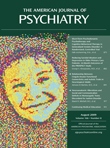The historically recent antipathy between religion and psychiatry stemming from Freud, Ellis, and other secular intellects has been gradually reversed through the influence of the wider movement over the last several decades to reintegrate spirituality into health care. Ironically, many of the leaders of this effort have been psychiatrists, among whom none is more prolific than Harold Koenig, M.D., the author of over 40 books on the topic, several of them dealing specifically with religion and mental health. His latest work, Medicine, Religion, and Health: Where Science and Spirituality Meet, is a concise yet substantive tour of the burgeoning research base examining the relationship between religion and health. The book, which is directed toward the educated generalist, has chapters covering studies of religion and health, involving the cardiovascular and immune/endocrine systems, longevity, and disability. Mental health professionals will be particularly interested in the chapters on mind-body interactions, mental health, and diseases related to stress and behavior, as well as the final chapter on clinical applications of the research. Psychiatrists will be conversant and likely comfortable with Koenig’s overarching thesis:
It appears that psychological and social factors influence the physiological systems of the body that are directly responsible for good health and the ability to fight disease. Therefore if religious/spiritual involvement can be shown to enhance psychological health and social interactions, it is reasonable to hypothesize that religious factors may improve physical health as well, doing so by reducing psychological stress, increasing social support, and encouraging positive health behaviors. (p. 53)
The author presents the book as a review of current controversies in the field, but I found it to be less a debate about adamantine questions, such as the efficacy and ethicality of intercessory prayer or the limitations of conventional dualistic mind-body formulations, than a mostly balanced overview of contemporary evidence for the religion-medicine interface as both a legitimate area of research and a domain of practical importance for clinical care. Critics have pointed out methodological weaknesses in the empirical research Koenig cites, such as failure to control for psychosocial confounders, conflicting findings, difficulty measuring intangible concepts, and paucity of randomized controlled trials (1). More significant are the critiques of several theologians and ethicists that the emphasis on data and outcomes is misguided at best and dangerous at worst in that it may trivialize the search for truth, reduce the sacred to the naturalistic, and operationalize the transcendent (2, 3). It should be noted that Koenig recognizes that he does not discuss the latter concerns in this brief book and refers the interested reader to his encyclopedic Handbook of Religion and Health, now in revision (4).
Koenig does engage a number of the methodological criticisms in a deliberate and scholarly manner, especially in his fine first chapter, which cogently argues that the current diffuse and broad definitions of spirituality constitute a primary limitation of research while paradoxically constituting strength in clinical care due to their very inclusiveness. Definitions of spirituality, the author contends, have been weakened through conflation and confusion with both mental health and humanistic values and qualities, such as happiness and hope. For the term spirituality to have validity and more reliability, it must return to its traditional anchoring in the religious or sacred.
Even those who do not find the empirical evidence convincing will be hard pressed to dismiss the impressive case Dr. Koenig builds in this and his other work that clinicians are called upon to sensitively, intelligently, and empathically address the spiritual needs and distress of patients, especially those with mental health disorders. Readers will also want to seriously consider the author’s contention that a reinvigoration of the collaborations between health care systems and faith-based organizations, which characterized earlier periods of American medicine, has the potential to positively and materially meet the growing demands of an aging population in an era of escalating health care costs.
Despite the conceptual caveats raised above, it would be difficult to find a more readable précis of religion and medicine than this book. It is an excellent introductory text for courses or seminars on spirituality and health care, and the extensive references and appendix of resources facilitate the use of the volume for those wishing to pursue additional scholarship or who need an authoritative yet accessible guide to the field.

